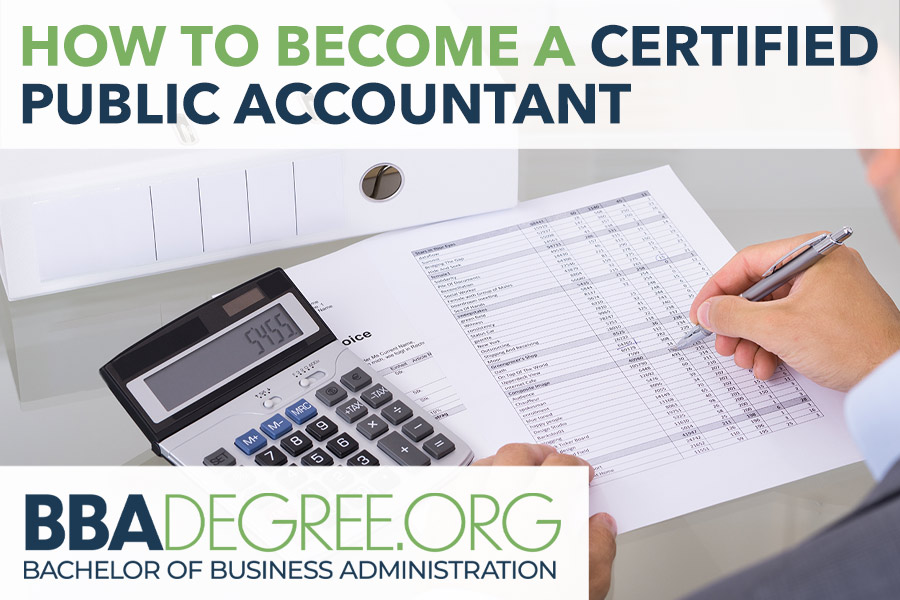How to Become a Certified Public Accountant (CPA)

Becoming a Certified Public Accountant (CPA) is a rewarding career path for individuals interested in the field of accounting. CPAs are highly skilled professionals who provide financial services such as auditing, tax preparation, and financial consulting. This article will guide you through the step-by-step process to become a CPA, including the educational requirements, certifications, salary insights, and potential job opportunities.
What Is a Certified Public Accountant?
A Certified Public Accountant (CPA) is a licensed accounting professional who has met specific educational and experience requirements, passed the Uniform CPA Examination, and fulfilled state licensing requirements. CPAs provide financial expertise, ensure regulation compliance, and assist clients with financial planning and decision-making. Here are some typical job duties and responsibilities of a CPA:
- Conducting financial audits and ensuring accuracy and compliance
- Preparing and reviewing financial statements, tax returns, and other financial reports
- Advising clients on tax planning strategies and helping them navigate complex tax laws
- Providing financial analysis and recommendations for business improvement
- Assisting with budgeting, forecasting, and financial planning for organizations
- Offering guidance on regulatory compliance and financial reporting standards
RELATED: Learn about other BBA Careers.
Step 1: Complete a BBA Degree
A bachelor’s degree is the foundation for a career as a Certified Public Accountant. Pursuing a Bachelor of Business Administration (BBA) in accounting will provide you with the necessary knowledge and skills for the field. The curriculum of this BBA degree specialty typically includes courses in financial accounting, managerial accounting, auditing, taxation, business law, and finance.
It is essential to choose an accredited BBA program that meets high-quality standards. Accreditation from recognized bodies such as the Association to Advance Collegiate Schools of Business (AACSB) or the Accreditation Council for Business Schools and Programs (ACBSP) ensures that the program aligns with industry standards. Consider whether an online program option suits your needs, as many reputable universities offer online accounting programs that provide flexibility without compromising the quality of education.
Additionally, internships or co-op programs can be valuable opportunities to gain practical experience and enhance your understanding of accounting principles in real-world settings. Seek internships with accounting firms, corporations, or government agencies to develop your skills and establish professional connections.
RELATED: Find a BBA School Near You
Step 2: Determine If You Need Any Certifications to Become a CPA
While obtaining a bachelor’s degree is important, additional certifications may be required or recommended to become a CPA. The specific requirements vary by state, so it is crucial to research the guidelines set by the state board of accountancy where you plan to practice.
In most states, candidates must pass the Uniform CPA Examination administered by the American Institute of Certified Public Accountants (AICPA). The exam consists of four sections:
- Auditing and Attestation (AUD)
- Business Environment and Concepts (BEC)
- Financial Accounting and Reporting (FAR)
- Regulation (REG)
Adequate preparation through review courses and study materials is essential to succeed in the exam.
Step 3: Learn About CPA Salaries
Certified Public Accountants enjoy competitive salaries due to their expertise and the demand for their services. According to the U.S. Bureau of Labor Statistics (BLS), the median annual wage for accountants and auditors was $77,250 in May 2021. However, salaries can vary based on factors such as experience, education level, industry, and geographic location.
Specializing in a specific area of accounting, such as taxation or forensic accounting, can also contribute to higher earning potential. Continuous professional development, including obtaining additional certifications such as Certified Financial Planner (CFP) or Certified Management Accountant (CMA), can enhance career prospects and potentially lead to higher salaries.
Step 4: Find a Job as a Certified Public Accountant
Certified Public Accountants work in various environments, including public accounting firms, corporations, government agencies, non-profit organizations, and as independent consultants. Here are some typical workplaces/organizations that hire CPAs:
- Public Accounting Firms: These firms provide accounting, auditing, tax, and consulting services to clients. Working in a public accounting firm offers exposure to diverse industries and clients, providing valuable experience and career growth opportunities.
- Corporations: Many companies have in-house accounting departments where CPAs handle financial reporting, budgeting, and compliance. Industries such as finance, manufacturing, technology, and healthcare often employ CPAs.
- Government Agencies: Federal, state, and local government entities hire CPAs to ensure financial accountability, compliance with laws and regulations, and efficient financial management.
- Non-profit Organizations: Non-profit organizations rely on CPAs to handle financial management, reporting, and compliance with non-profit accounting standards.
- Consulting: CPAs can work as independent consultants or in consulting firms, providing specialized financial advice, conducting audits, and assisting clients with financial decision-making.
Networking within the accounting community, attending career fairs, and utilizing online job search platforms specific to accounting and finance can help you find job opportunities in your desired field.






















